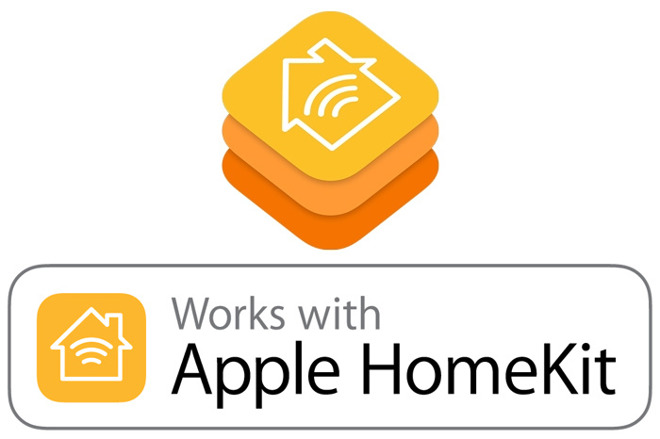Apple opens up HomeKit development with software authentication & looser licensing
In a Wednesday session during the company's ongoing Worldwide Developers Conference in San Jose, Apple announced a pair of changes to HomeKit meant to encourage faster adoption of the smarthome platform.

Developers can now experiment with HomeKit prototypes without obtaining an MFi (Made for iPhone/iPod/iPad) license first, according to Forbes. Devices can even mix in homebrew platforms like Arduino and Raspberry Pi -- once a product is ready for commercial sale, however, it must still pass through the certification process.
An updated HomeKit specification will meanwhile allow authentication through software, instead of a dedicated chip. This should enable HomeKit on some older accessories through a simple firmware update, though in practice the processor demands of Apple's encryption may limit upgrades.
HomeKit has become a reasonably popular smarthome standard, backed by companies like Philips, IKEA, GE, and Honeywell. Support has however lagged behind Amazon's Echo speakers, which have looser encryption and certification standards for developers.
On Monday Apple revealed a direct competitor to the Echo line, the HomePod, which responds to Siri commands and can act as a HomeKit hub. A key difference is the focus on high-end audio, thanks to seven tweeters, a subwoofer, and beamforming for vocals. It should ship in December for $349.

Developers can now experiment with HomeKit prototypes without obtaining an MFi (Made for iPhone/iPod/iPad) license first, according to Forbes. Devices can even mix in homebrew platforms like Arduino and Raspberry Pi -- once a product is ready for commercial sale, however, it must still pass through the certification process.
An updated HomeKit specification will meanwhile allow authentication through software, instead of a dedicated chip. This should enable HomeKit on some older accessories through a simple firmware update, though in practice the processor demands of Apple's encryption may limit upgrades.
HomeKit has become a reasonably popular smarthome standard, backed by companies like Philips, IKEA, GE, and Honeywell. Support has however lagged behind Amazon's Echo speakers, which have looser encryption and certification standards for developers.
On Monday Apple revealed a direct competitor to the Echo line, the HomePod, which responds to Siri commands and can act as a HomeKit hub. A key difference is the focus on high-end audio, thanks to seven tweeters, a subwoofer, and beamforming for vocals. It should ship in December for $349.


Comments
More so, the writer is a loser at grammar.
I don't believe we are getting gouged. Though I do hope over time smart devices become standard and all the things that make them special (and expensive) now can be manufactured at scale, lowering prices.
Hopefully HomeKit, specifically, is successful enough to generate economy of scale someday.
Besides, Homebrew already allowed you to include a Raspberry Pi on your HomeKit network to provide interactions between HomeKit and non-Homekit devices, which always led me to wonder about this proprietary chip in the first place. Clearly there were ways around that requirement already.
What I wonder if this would allow 3rd party hubs like Wink or SmartThings to update their firmware and provide a bridge between HomeKit and other protocols such as Zwave and Zigbee. If so, I will gladly eat my previous words that that would never happen.
Also, the Hue starter bulbs are much more technically capable than a dumb LED bulb. The have multiple color diodes and can replicate many more shades of color -- including warm whites that match incandescent bulbs perfectly. They have controllers and wireless hardware as well. I don't know what their margin is, but of course each will be more expensive than a dumb bulb. Rather than whine about it I've been enjoying them from Day 1 and deriving value. Even upgraded the hub to a HK model to use with the Home app and Siri. awesome.